Alcohol and Drug Prevention Policy
SAE Institute forbids the use, possession, distribution, or sale of drugs or alcohol by students, faculty, or staff anywhere within the school facilities or on campus grounds. Anyone in violation of state, federal, or other local regulations with respect to drugs or alcohol may be subject to both school disciplinary action and criminal prosecution, up to and including school expulsion for students or termination of employment for employees.
ALCOHOL AND DRUG ABUSE PREVENTION INFORMATION
Alcohol and drug consumption causes a number of changes in behavior and physiology, posing a significant threat to the health and welfare of our nation’s citizens. Even minor usage can impair judgment, coordination, and abstract mental functioning. Statistics show that the vast majority of violent behaviors (including acquaintance rape, vandalism, and assaults) involve alcohol and/or drug use. Additionally, continued use stresses social relationships and may lead to dependency, which often causes permanent damage to vital organs and is counterproductive to a healthy lifestyle.
There are definite health risks associated with the use of alcohol and drugs. Alcohol or any other drug used in excess over time can produce illness, disability, and death. The health consequences of substance abuse may be immediate and unpredictable, such as cardiac arrest or liver deterioration.
PREVENTING DRUG AND ALCOHOL ABUSE
Drug abuse costs US taxpayers billions of dollars in preventable health care, law enforcement, crime, and other costs, not to mention the emotional costs to the abusers and their families. But, as the sentence states, it is preventable. Addiction is a developmental disease, usually starting during adolescence when the brain is still going through critical developmental phases. Studies have shown that prevention and early intervention work best. Early intervention programs such as D.A.R.E. (Drug Abuse Resistance Education) and The Courage to Speak Foundation, which is “saving lives by empowering youth to be drug-free and encouraging parents to communicate effectively with their children about the dangers of drugs” are best at preventing future alcohol and drug abuse.
SANCTIONS FOR VIOLATION OF LOCAL, STATE, AND FEDERAL LAWS
The use of alcoholic beverages must be in compliance with state law and is strictly limited to persons 21 years of age or older. The possession, transportation, and/or consumption of alcohol by individuals under 21 years of age is strictly prohibited. Federal and State Law prohibits the solicitation, procurement, sale, or manufacture of narcotics or controlled substances except as expressly permitted by law. Applicable legal sanctions under local, state, and federal law for the unlawful distribution of alcohol and drugs range from probation, diversion, imprisonment in the county jail for less than one year, to imprisonment in state prison. A police officer can take the license from any driver suspected of driving under the influence of alcohol and drugs who refuses to take a blood-alcohol test.
Please see the following links for details of the laws regarding drug and alcohol use on both a State and Federal Level:
ALCOHOL AND DRUG ABUSE RESOURCES
The results of alcohol and drug abuse can be devastating, but students and employees can find help. Please see the links below, which provide resources to assist those that have alcohol and drug abuse problems:
Alcoholics Anonymous – a national organization that helps those that are struggling with alcohol abuse.
In addition to Alcoholics Anonymous, here is a link to other local resources available to help students.








